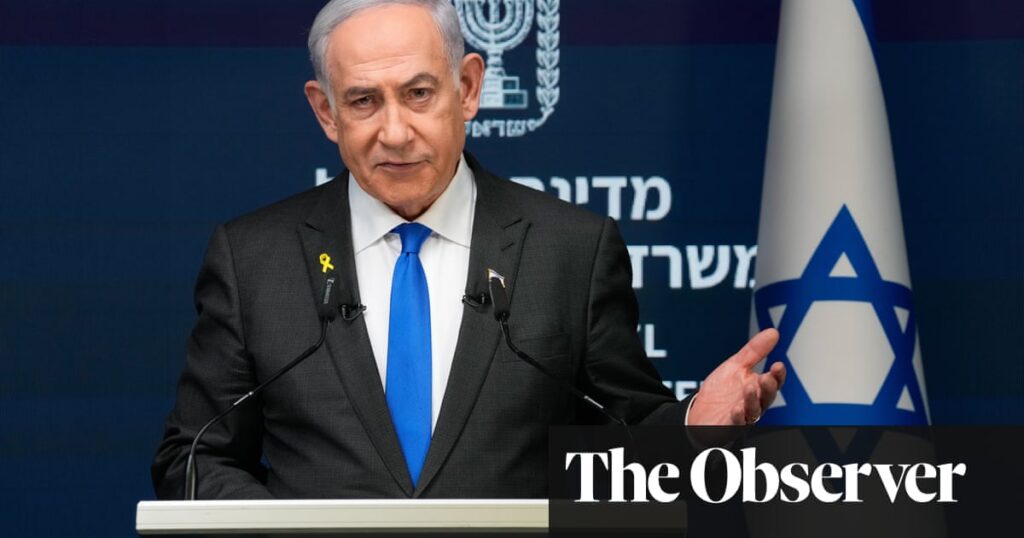A year ago, Prime Minister Benjamin Netanyahu came to the UN with a vision for a “new Middle East” based on stronger ties between Israel and regional Arab countries. Now he is ignoring calls for restraint from allies over the Gaza war and defying criticism that he is evading ceasefire talks, and is on the brink of launching a major offensive against Hezbollah.
The Israeli prime minister remains scheduled to address the United Nations General Assembly on Friday, in a move sure to lead to strikes and protests in the streets of Midtown Manhattan.
He delayed his arrival in the United States by at least a day after tensions with Lebanon escalated following a major operation to detonate thousands of pagers and walkie-talkies used by Hezbollah that could mark the start of a larger war in the region.
The New York visit could be an opportunity for Trump to gauge support for the escalation in Lebanon or to signal to President Joe Biden and other allies that he has made up his mind and will not respond to persuasion to prevent a broader war.
Netanyahu’s visit to the UN comes after a year of bloodshed in the Gaza Strip that has left more than 41,000 people dead and led the International Criminal Court (ICC) to consider issuing arrest warrants for Netanyahu and Gaza’s Hamas leader, Yahya Sinwar. There have been frequent rumors that ICC judges are on the verge of approving an arrest warrant that could charge Netanyahu with war crimes.
Among those killed during the Gaza conflict are 200 UN humanitarian workers. Netanyahu and the Israel Defense Forces have alleged that staff from the UN Relief and Works Agency for Palestine Refugees in the Near East (UNRWA) participated in the Hamas-led attack on October 7, and following an internal UN investigation, the contracts of nine UNRWA employees were terminated.
UN Secretary-General Antonio Guterres said he and Netanyahu had not spoken since the war began but was open to meeting on the sidelines of summits if the Israeli prime minister requested it.
“I haven’t spoken to him because he didn’t answer my calls, but there’s no reason not to,” said Guterres, who decried the “lack of accountability” for the deaths of humanitarian workers killed in what the UN condemned as an indiscriminate attack.
Asked earlier this month whether Netanyahu would meet with Guterres, Israel’s U.N. Ambassador Danny Danon said the Israeli prime minister’s schedule had not yet been finalized.
During Netanyahu’s most recent visit to the U.S. in July, he addressed a raucous joint session of Congress, promising “total victory” in the fight against Hamas and deriding as “idiots” those who protested against his speech at the U.S. Capitol. In the streets near Union Station, demonstrators clashed with police and defaced a marble statue with paint.
It remains to be seen whether Netanyahu is prepared to take another step into the abyss. Following an airstrike in Beirut’s Dahieh district on Friday that killed a senior Hezbollah commander and at least 13 others, Israeli Defense Minister Yoav Gallant said, “We will continue to pursue our enemies, even in Dahieh, Beirut, to protect our people.”
“The series of operations in this new phase of the war will continue until we achieve our goal: communities in northern Israel can return safely to their homes,” he said.
Guterres said the bomb-based pager attack on Hezbollah could be a precursor to greater Israeli military action in Lebanon, warning that the region was on the “brink of catastrophe.”
Analysis and opinion on the week’s news and culture from the Observer’s best writers.
Privacy Notice: Our newsletter may contain information about charities, online advertising and externally funded content. For more information, please see our privacy policy. We use Google reCaptcha to protect our website and are subject to the Google Privacy Policy and Terms of Use.
After newsletter promotion
It was unclear whether Netanyahu was prepared to escalate tensions, including by launching a ground operation, and both Hezbollah and its backer Iran have promised retaliation for recent attacks. But Netanyahu’s office said on Friday that his arrival would be delayed by a day given the situation, and Danon told reporters later that Netanyahu’s arrival date would depend on the situation in Israel.
Netanyahu spoke at the United Nations last year in high spirits over the recently concluded Abraham Accords, a landmark agreement that normalized ties between Israel and Arab nations Bahrain and the UAE, with hopes Saudi Arabia would soon sign on to the deal.
“If the Palestinians see that most of the Arab world has made peace with the Jewish state, they too will be more likely to abandon their illusions of destroying Israel and finally embrace the path of true peace with Israel,” Netanyahu said, holding up a crude map with the words “New Middle East” written on it.
But tensions have risen following bloody incidents in Gaza following attacks by Hamas, and Saudi Arabia’s Crown Prince Mohammed bin Salman recently said he would not recognise Israel without a Palestinian state with East Jerusalem as its capital.
And if ICC judges make the surprising decision this week to charge Netanyahu with war crimes in Gaza, it would be yet another humiliation for him, as he would slide from social pariah to international fugitive.



